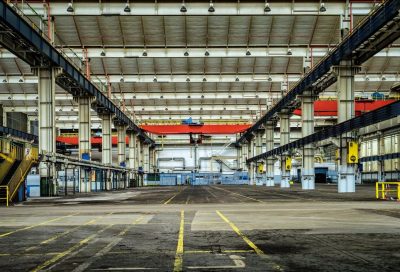European Customers Are “Abandoning” UK Firms as Manufacturing Figures Sink

Signs that European customers are “abandoning” UK firms are starting to show after British manufacturing recorded the steepest downturn in almost three years.
Following an early Brexit stockpiling boom at the start of the year May figures dipped significantly for UK manufacturers with new orders drying up.
Make UK – formerly known as the EEF – said the downturn shows investment plans have been “paralysed” by Brexit uncertainty in the second quarter of the year, warning that a ‘no deal’ would equate to “economic lunacy”.
The warnings have been sounded as the IHS Markit/CIPS UK Manufacturing Purchasing Managers’ Index (PMI) fell to 49.4 from 53.1 in April, its lowest level since July 2016 and worse than all forecasts in a Reuters poll of economists that had pointed to a fall to 52.0.
Make UK’s chief executive, Stephen Phipson, warned elements of the manufacturing industry would be pushed over the edge if the uncertainty continued.
He said:
“Earlier this year there was clear evidence that industry was on steroids as companies stockpiled.
“Underneath, however, there is now growing evidence of European companies abandoning UK supply chains, whilst Asian customers baulk at the unknown of what may exist as the UK leaves trade agreements which operate under EU rules.
“With this picture it would be the height of economic lunacy to take the UK out of the EU with no deal in place. The race to the bottom in the interests of party ideology has to stop otherwise there will be a heavy price to pay.”
*
Note to readers: please click the share buttons above or below. Forward this article to your email lists. Crosspost on your blog site, internet forums. etc.
Jack Peat is a business and economics journalist and the founder of The London Economic (TLE).He has contributed articles to The Sunday Telegraph, BBC News and writes for The Big Issue on a weekly basis.Jack read History at the University of Wales, Bangor and has a Masters in Journalism from the University of Newcastle-upon-Tyne.
Featured image is from The London Economic

